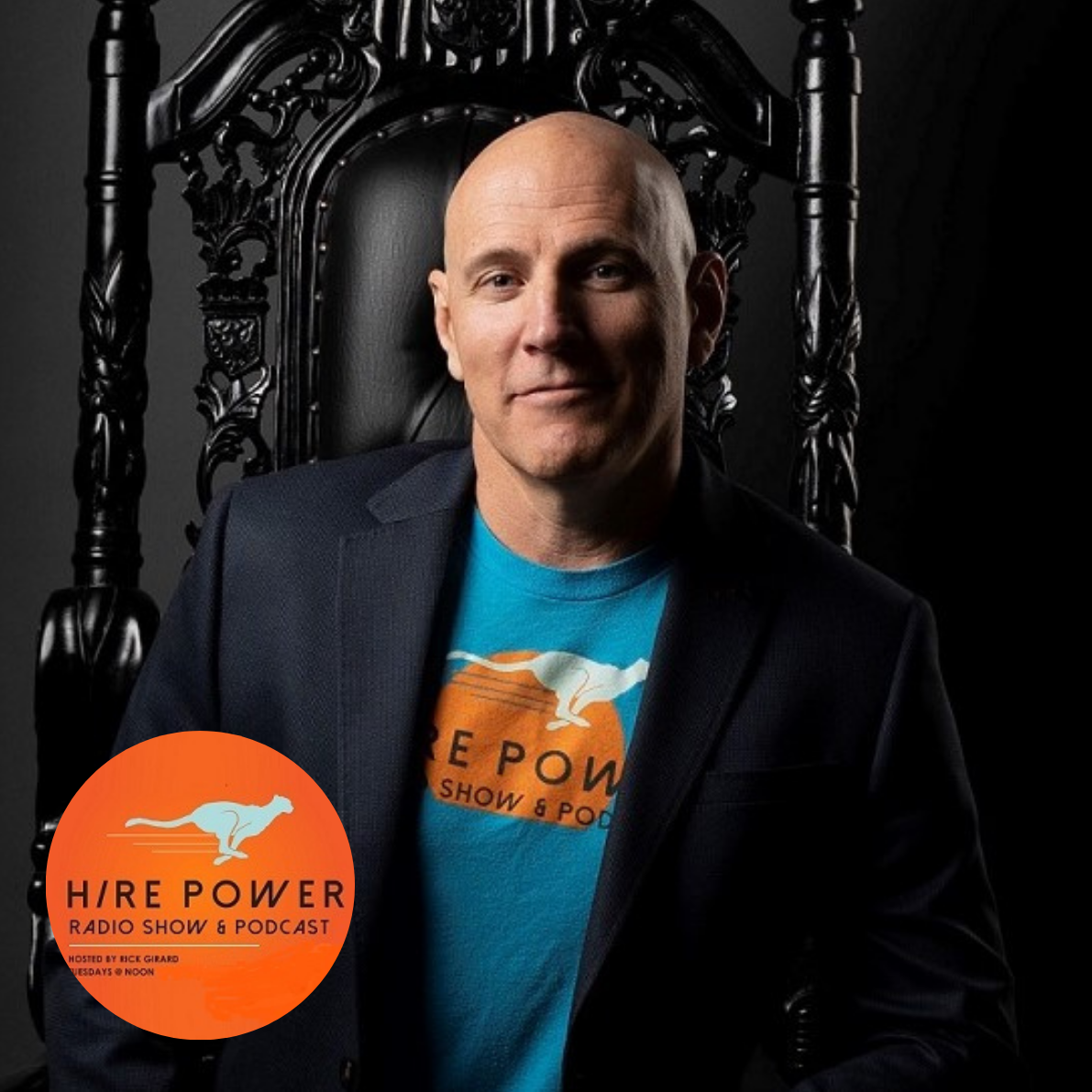
Welcome to the Hire Power Radio Show, where entrepreneurs and business leaders learn to hire with confidence and precision. Hosted by Rick Girard, this show is your go-to resource for avoiding costly hiring mistakes and securing the right talent to drive your company’s success. We dive deep into hiring challenges each week, featuring candid conversations with top-performing rebel entrepreneurs, disruptors, and industry experts. Join us every Tuesday at noon (PT) on LinkedIn Live for actionable insights, proven strategies, and the latest trends to give you the hiring edge. Subscribe now and join the movement to transform your hiring game. Do you have thoughts or questions? We’d love to hear from you!
Episodes

Thursday Aug 29, 2019
Thursday Aug 29, 2019
We have all experienced it….Trying to coordinate calendars to accommodate an interview. It is a BIG time suck from someone’s day!
How to eliminate some of the administrative tasks and shift into more productive work that moves your business forward.
Today’s Quote:
"There's a lot of automation that can happen that isn't a replacement of humans but of mind-numbing behavior." - Stewart Butterfield
Guest Bio:
Olivia Melman leads DigitalOcean’s Recruiting Operations team, having joined the company as the People team’s first Program Manager in March 2017. In addition to managing the Recruiting Coordinators, Olivia is focused on automation and collaboration within the full-cycle recruitment process, and owns all data and tooling associated with recruitment strategy. She also manages DigitalOcean's external partnerships with talent acquisition and branding vendors, and runs point internally on headcount planning alongside the FP&A team. Olivia started her career in Financial Services as an HR Management Analyst, and most recently, was a Customer Success Manager for LinkedIn’s Talent Solutions business.
Show Highlights:
- The issues around Calendar management
- The challenges with just coordinating & scheduling interviews
- Solution to optimize your interview calendaring issues
What are the challenges in scheduling interviews today?
My team’s responsible for coordinating interviews -- at a really high volume (averaging 200 hires a year), but the challenge we’ve run into is really how to maximize time in meaningful ways.
- Limited interviewer availability and limited candidate availability -- coordinating calendars effectively becomes really difficult
- 70% of my team’s days are spent browsing Google calendars to schedule interviews (more specifically, onsite interviews where we are bringing candidates in to meet several people from our hiring teams)
- Interview scheduling ties to candidate experience, employee experience (hiring teams) and the experience of those on my team (it’s frustrating staring at Google Calendar all day!)
Why is it important?
- Time spent where people are not contributing their maximum potential/value to the team -- once you’ve mastered how to schedule, you don’t learn from each instance
- At this kind of junior level role, it’s important to me that my teams gaining relevant experience beyond the task at hand (scheduling) -- and is in fact as an operations leader, I need them to gain system implementation experience -- program management and change management experience so that I can effectively delegate down the road
- (personally, I want to make sure that everything my team is doing is contributing to their individual growth and development).
- Navigate gaps- communication upfront
Rick’s Input:
- Always one person- have an alternate
- A bench of back-up dancers (interviewers)
How do we solve this problem?
- Using a new technology platform to automate interview scheduling and eliminate the “calendar Tetris” of trying to schedule onsite interview panels / back to back interviews.
- The tool essentially enables the user to build the interview panel or team (select interviewers, interview duration, format, location -- set times) and then the tool does the work for us by using AI to pull in Google Calendars and find time slots where the selected interviewers are available back to back and for the assigned formats/durations.
- Cut to 40% of the time using system administration skills rather than scheduling role (30% time savings)
How did we go about finding a solution?
- Discovery and assessment -- figuring out exactly what the workflow looks like now (in terms of people, process, and systems)
- People -- do we have the right people executing? Who are the stakeholders? Is that who they should be?
- What activities are these individuals working on that isn’t adding value? For example, what is being executed that doesn’t bring 1) learning 2) development or maybe 3) revenue or however YOU define value for your org
- Let’s break out those individual activities we identified and first, look internally to solve with automation (an example where we did leverage internal resources was with a web-based candidate resource library -- so that we could stop attaching docs to every email and updating links in a zillion place, just have one link do.co/candidates)
- If nothing internally available, then go to market to see what external vendors or technology partners exist
- Vendor selection: Speak to DO philosophy on vendor selection (simple and elegant, ability to inform product design, contribute to vendor success) → this led us to Interview Schedule!
Rick’s two cents:
- Standardize a process where anyone can step in
- Assign questions to each person in the process
- Evaluate based on the company values
- Pre-schedule days for interviews
Key Takeaways:
- People, process, then systems -- nothing will work if you don’t have the right people in place
- Implementation -- making sure you think through user adoption and change management
- Metrics for success -- any time you are investing in automation ($$), making sure you have a clear vision for what success looks like

No comments yet. Be the first to say something!